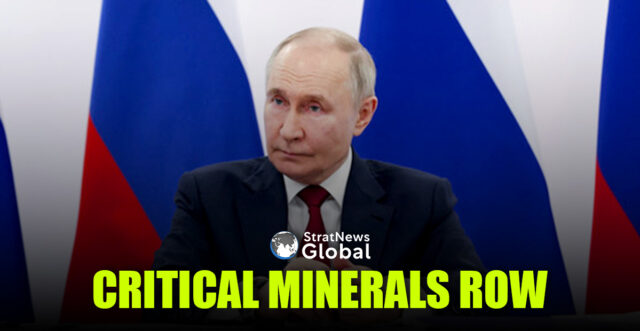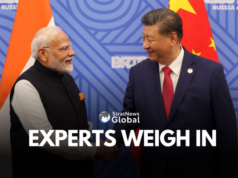U.S. President Donald Trump and Chinese President Xi Jinping are set to speak soon to resolve trade tensions, including a dispute over critical minerals, Treasury Secretary Scott Bessent said on Sunday.
Trump on Friday accused China of violating an agreement with the U.S. to mutually roll back tariffs and trade restrictions for critical minerals.
“What China is doing is they are holding back products that are essential for the industrial supply chains of India, of Europe. And that is not what a reliable partner does,” Bessent said in an interview with CBS’ “Face the Nation.”
“I am confident that when President Trump and Party Chairman Xi have a call, this will be ironed out. But the fact that they are withholding some of the products that they agreed to release during our agreement – maybe it’s a glitch in the Chinese system, maybe it’s intentional. We’ll see after the President speaks with the party chairman.”
Trump-Xi Talks
Trump said on Friday he was sure that he would speak to Xi. China said in April that the two leaders had not had a conversation recently.
Asked if a talk with Xi was on Trump’s schedule, Bessent said, “I believe we’ll see something very soon.”
White House economic adviser Kevin Hassett said no specific date for the conversation has been set, but there have been discussions that the leaders will talk about last month’s Geneva agreement on some tariff disputes.
“President Trump, we expect, is going to have a wonderful conversation about the trade negotiations this week with President Xi. That’s our expectation,” Hassett said.
Minerals Trade Dispute
The ongoing trade dispute between the U.S. and China over critical minerals has emerged as a key flashpoint in their broader economic rivalry.
Critical minerals—such as lithium, rare earth elements, and cobalt—are essential for a range of high-tech and defence applications, including electric vehicles, semiconductors, and renewable energy systems.
As the world’s largest processor of these minerals, China holds significant leverage over global supply chains.
Tensions escalated after Washington imposed export restrictions on advanced semiconductor technology, citing national security concerns. In response, Beijing tightened export controls on rare minerals such as gallium and germanium, essential for chipmaking and military hardware.
This tit-for-tat has heightened fears of supply chain disruptions and strategic vulnerabilities, particularly in the U.S., which depends heavily on Chinese imports for many of these materials.
(With inputs from Reuters)





